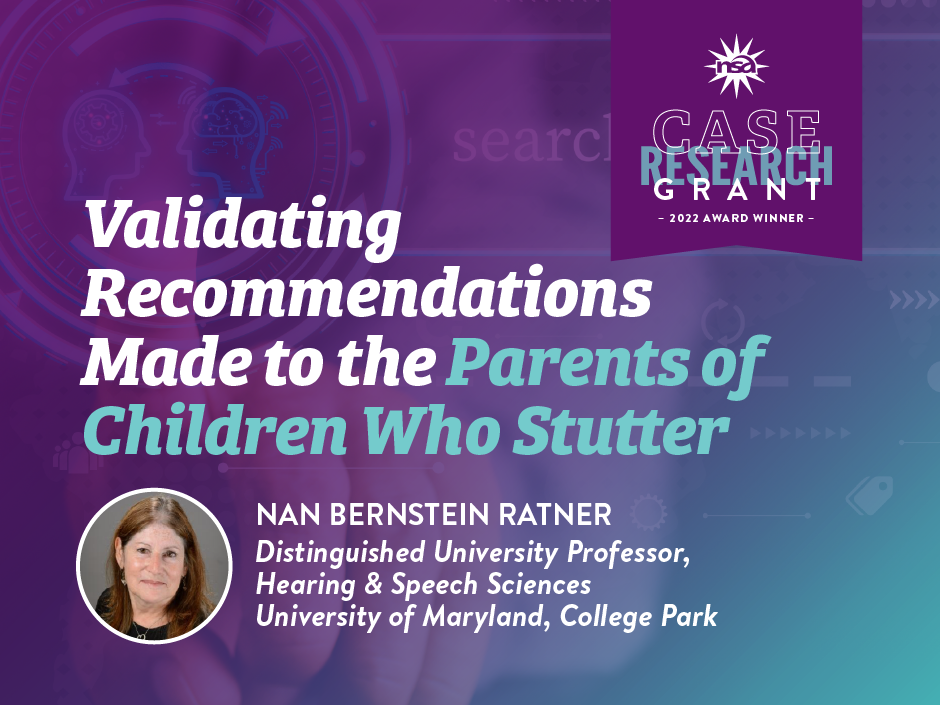Stuttering Research Spotlight: Dr. Christopher Constantino, PhD, CCC-SLP
- National Stuttering Association
- Nov 24, 2025
- 3 min read

The National Stuttering Association is proud to highlight Dr. Christopher Constantino, Associate Professor at Florida State University, whose research is uncovering how stuttering identity shapes emotional well-being. A recipient of the 2019 Canadeo Award, Dr. Constantino is exploring what it means to truly feel good about being a person who stutters.
Why Stuttering Research Matters
Dr. Constantino’s project began with a question: How does stuttering impact someone’s sense of self and their emotions during everyday speaking?
“I was interested in how aspects of a speaker’s stuttering identity impacted their well-being while speaking,” Dr. Constantino explained. “Specifically, I measured stuttering’s centrality (how important it is to a speaker’s sense of self), private regard (their attitude toward stuttering), and positive and negative affect (how they were feeling in a particular moment).”
He also tracked stuttering’s salience—how aware participants were of their stuttering during conversations—and measured spontaneity and fluency.
Studying Life as It Happens
Rather than relying solely on lab settings, Dr. Constantino took his research into the real world. He used the experience sampling method, asking adults to complete brief surveys on their smartphones multiple times a day for a week.
“This allowed me to measure their subjective experience of speaking in the real world, as it occurred during their everyday life,” he said.
What Dr. Constantino Found
The results are striking:
When someone is highly aware of their stuttering (high salience), having stuttering as a central part of their identity can help them feel better.
Feeling good about being a person who stutters (private regard) supports positive emotions, especially when stuttering is highly noticeable.
The less effort a speaker puts into speaking, the better they feel. In contrast, speaking fluently with effort can make someone feel worse.
“This is the first study documenting that salience of stuttering can be anything other than negative,” Dr. Constantino said. “Furthermore, stuttering salience was not just neutral; it was positive! This is a real, documented benefit of stuttering. We have measured stuttering gain.”
Implications for Therapy and Support
These findings have major implications for how people who stutter—and the professionals who support them—approach therapy. Traditional approaches often aim to create fluent speakers at all costs, but Dr. Constantino’s research suggests a different path.
“These findings show that therapies that pursue a false fluent identity forfeit the potential well-being gains of a positive stuttering identity,” he said. “Increasing private regard for stuttering improves psychological outcomes and may be tied to speaking more spontaneously. Therapy should target integrating stuttering into one’s sense of self and cultivating a sense of stuttering pride.”
This perspective is central to Stutter-Affirming Therapy, which Dr. Constantino developed to help speakers embrace stuttering rather than reject it. The approach has three main priorities:
Reject fluency by reducing stutterphobic reactions and increasing stutterphilic reactions.
Value stuttering by discovering what speakers gain from it.
Create an environment in which it’s easier to stutter through education, advocacy, disclosure, and voluntary stuttering.
Looking Ahead
Dr. Constantino is continuing to expand this research. His work promises to influence not only therapy practices but also how stuttering is understood, discussed, and valued in everyday life.
“The next step is to study how to facilitate a more positive stuttering identity by increasing centrality and private regard,” he said.
For those interested in learning more, Dr. Constantino presented his findings at the Oxford Stuttering and Cluttering Research Conference and plans to publish them soon.




Comments